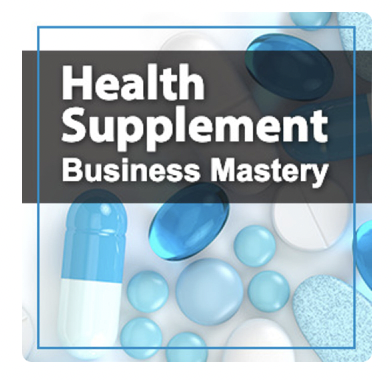
Both trust and belief drive half of supplement marketing.
In the competitive world of selling supplements online, many things affect what people decide to buy.
Two of the most important factors are trust and belief.
These play a big role in pulling people toward choosing a specific supplement.
Buying supplements isn’t just about facts or ingredients.
It’s tied to emotions like wanting to feel healthy, look good, and live a vibrant life.
Even with all these feelings, trust and belief are what truly guide people when making their final choice.
Trust comes from many places—such as honest marketing, good reviews, and a strong reputation. If a brand seems reliable and cares about its customers, people are more likely to give it a try.
Belief, on the other hand, is more personal. It’s about what someone feels deep down.
The Importance of Trust in Supplement Marketing
Trust is the foundation upon which many consumer decisions are built.
Selling through trust is especially true in the supplement industry.
Given that supplements are ingested, consumers need to trust the products they choose to integrate into their daily routines.
This trust can take various forms.
Including trust in the brand.
Trust in the product’s ingredients.
Trust in the sources of information.
And more.
Trust in the Supplement Brand
One of the strongest forms of trust is the trust people place in a brand.
Big supplement brands like Nature Made or Garden of Life are trusted because they have a long history of making safe, high-quality products.
These brands often follow strict rules for making their supplements and earn certifications like NSF or USP, which show their products are tested and reliable.
When people trust a brand, they feel safe using its products.
This trust is built over time through consistent product quality, transparency in ingredient sourcing, and positive consumer experiences.
Smaller supplement brands don’t have the history that bigger brands have.
But smaller dietary supplement brands can build this kind of trust quickly. Even if they are new to the market.
Here are some ways smaller supplement brands can build trust:
- Use high-quality ingredients: Be clear about where your ingredients come from. Share if they are organic, non-GMO, or sustainably sourced. For example, a brand can highlight that its sourcing comes from a specific, place in the world. For example in the mid-mountain range in the Himalayas. See how that adds specificity to build trust?
- Get third-party testing: Show that your supplements are tested by an independent lab. Post certificates or lab results on your website to prove the product is safe and effective. This is likely being done by your supplement manufacturer but it’s typically not something that is in most marketing to consumers.
- Be transparent: Explain how your products are made. Share details about your process, like how you ensure quality at every step. You can add more trust by talking about the collection process of the raw ingredients. For example, Hand-picked by sherpas in the eastern region of Nepal.
- Engage with your audience: Answer customer questions on social media or your website. Share videos or blogs that explain how your supplements work. This makes the brand feel more personal and relatable.
- Share real stories: Highlight testimonials or success stories from real customers. For example, you could feature a customer who saw improvements in their energy levels after using your product. Make sure your highlighted testimonials are ones that match the target demographic you’re going after exactly. This is one case where video is best, so that your prospect can actually see and hear real results from someone just like them.
- Partner with experts: Collaborate with nutritionists, doctors, or health coaches who trust your brand and can recommend it to others. This is perhaps the fastest way to borrow trust with a new audience.
By doing these things, smaller brands can stand out in a crowded market. They can create the same kind of trust that makes people loyal to bigger brands.
Trust in Product Ingredients
Beyond brand trust, consumers also need to believe in the efficacy of the supplements they purchase.
Transparency is a key strategy used by supplement brands to build trust with their customers.
This includes clear labeling of ingredients, providing information about sourcing and manufacturing practices, and offering access to third-party testing results.
Brands that are open about their processes and provide consumers with the information they need to make informed decisions are more likely to earn and maintain trust.
This trust often stems from scientific backing, endorsements by health professionals, or personal testimonials.
For instance, a consumer may choose a particular fish oil supplement because it is supported by clinical studies that demonstrate its effectiveness in lowering triglyceride levels.
The presence of such evidence can be a strong factor in a consumer’s decision-making process, as it validates the product’s claims.
The trust in the product’s ability to deliver on its promises is a critical motivator that drives purchases.
Testimonials and success stories are powerful tools in reinforcing consumer trust in a supplement’s benefits.
When potential customers see or hear about others who have achieved positive results, it strengthens their belief that they too can experience similar benefits.
These stories not only validate the product’s efficacy but also resonate with the emotional and motivational drivers of potential customers.
Additionally, a brand that openly shares its sourcing practices provides clear evidence of product testing, and engages with its customer base in an authentic manner can quickly build trust, even in a crowded market.
For example, a supplement company that sources its ingredients from sustainable farms and offers full disclosure of its supply chain is likely to attract consumers who value ethical practices. By being transparent, the brand not only builds trust but also aligns itself with the beliefs and values of its target audience.
Here are a few examples of how smaller supplement brands can build trust in their product’s effectiveness. While still staying compliant.
- Share scientific research: Use studies to show how the ingredients in your supplement work. These can be studies that are already published, in which you can borrow trust.
- Show real results: Highlight customer success stories. Share quotes or videos from people who have seen improvements after using your product.
- Use before-and-after data: Show measurable changes, like improved blood sugar levels or higher energy. Graphs or charts can make it easy to understand.
- Partner with health experts: Work with doctors, nutritionists, or wellness coaches. If experts trust your product, customers are more likely to believe it works.
- Provide certifications: Get third-party testing to prove your product does what you say. Show seals or certificates on your website or packaging.
- Run small trials: Offer free samples to customers and ask for feedback. Share their positive results publicly to build confidence.
- Be specific about benefits: Don’t just say your supplement “boosts health.” Explain how it improves energy, supports digestion, or balances hormones.
- Offer a guarantee: Let customers know they can get their money back if they don’t see results. This reduces their risk and builds trust.
By doing these things, a smaller brand can prove its product really works. Trust grows when customers see clear evidence and real results.
Trust in Information Sources
Consumers often rely on trusted sources of information to guide their supplement choices.
This can include healthcare professionals, trusted websites, or influencers with credibility in the health and wellness space.
The role of these trusted sources is to provide clarity and assurance in a market that can sometimes be overwhelming due to the sheer number of options and varying levels of quality.
For example, a recommendation from a doctor or a dietitian to take a specific vitamin D supplement can carry significant weight, as consumers trust their expertise.
Similarly, a well-researched article on a trusted health website can help consumers feel confident in their decision to try a new supplement.
If you can’t get or afford a medical doctor recommendation for your supplement brand there are several alternatives. Such as chiropractors, nutritional practitioners, dietitians, physical trainers, and more.
The bottom line is that you want to build trust in the information and source of that information on your sales page.
Here are some guidelines to follow when it comes to trust of information:
- Link to trusted research: Share studies from well-known medical journals or universities. For example, include links to research about the benefits of magnesium.
- Get an expert review: Have doctors or nutritionists review your information. And display this information on every blog post and sales page.
- Show certifications: Use third-party testing and certification from groups like NSF or USP. This shows your information is backed by science.
- Use clear references: List the sources for any claims you make. For example, if you say, “Studies show berberine helps with blood sugar,” link to those studies. Use footnotes and citations that reference each study.
- Include expert quotes: Use quotes from trusted professionals in your marketing. You can even use quotes from institutions and organizations, as long as you cite them. As a way to borrow trust.
Customers will feel confident knowing the information is real and reliable.
The Role of Belief in Supplement Marketing
Belief is a big reason why people buy supplements.
Belief often works hand in hand with trust.
People need to believe that the supplement will help them.
They also need to believe in the ideas behind taking supplements.
For example, some people believe in natural health.
They think using vitamins and minerals is better than taking prescription drugs.
Others believe a supplement will help them reach a personal health goal, like having more energy or losing weight.
When people believe in a supplement, they feel hopeful. This hope often turns into action, leading them to make a purchase.
Belief, like trust, is multi-faceted.
There is belief in the product’s benefits.
Belief in the health philosophies that support the reason people take dietary supplements.
And belief in personal health goals all play a role in marketing supplements.
Let’s take a deeper look at each.
Belief in Product Benefits
Consumers often purchase supplements because they believe in the benefits that these products can provide.
This belief may be based on scientific research, anecdotal evidence, or even cultural practices.
For instance, turmeric supplements are popular among those who believe in their anti-inflammatory properties, supported by both traditional Ayurvedic medicine and contemporary research.
The belief in turmeric’s ability to reduce inflammation and support joint health motivates many consumers to incorporate it into their daily regimen.
Similarly, the belief in the immune-boosting properties of echinacea drives its popularity during cold and flu season.
Despite mixed scientific evidence, the cultural and historical use of echinacea as a natural remedy for respiratory infections continues to fuel consumer belief in its efficacy.
Belief in Health Philosophies
Beyond specific product benefits, consumers are often guided by broader health philosophies that emphasize natural, preventative, and holistic approaches to well-being.
This belief system can lead to a strong preference for dietary supplements as part of a proactive health strategy.
For example, the growing trend towards integrative medicine, which combines conventional and alternative treatments, has led many consumers to believe in the importance of supplementing their diet with vitamins, minerals, and herbal remedies.
This belief is rooted in the idea that modern diets may not provide all the necessary nutrients for optimal health, and supplements are seen as a way to fill these gaps.
The popularity of plant-based and organic supplements is also driven by a belief in the superiority of natural products over synthetic alternatives.
Consumers who prioritize clean, natural living are more likely to trust and believe in supplements that align with their health values, such as organic multivitamins or herbal teas.
Belief in Personal Health Goals
Personal health goals, whether they are related to fitness, weight management, or overall wellness, are often underpinned by a strong belief in the power of supplements to help achieve these goals.
This belief is not just about the functional benefits of the supplements but also about the psychological motivation that comes from taking proactive steps toward one’s health objectives.
For instance, an individual training for a marathon might believe that protein powders and BCAA supplements are essential for muscle recovery and endurance.
This belief drives their purchase decisions and shapes their supplement routine, reinforcing their commitment to their training goals.
Similarly, someone looking to improve their mental clarity and focus might turn to nootropic supplements like omega-3 fatty acids or ginkgo biloba, driven by the belief that these products will enhance their cognitive performance.
This belief is often strengthened by anecdotal evidence, marketing claims, and the desire to gain an edge in work or academics.
The Interplay of Trust and Belief in Supplement Marketing
Trust and belief are the twin pillars that support the decision-making process in supplement purchases.
Trust provides the foundation of confidence in the safety, quality, and efficacy of the products.
While belief fuels the motivation to achieve personal health goals and embrace health philosophies.
Together, these elements create a powerful pull that draws consumers towards dietary supplements, shaping their choices and driving the growth of the industry.
Supplement brands know trust and belief are super important. These two things help people decide what to buy. That’s why they are a big part of good marketing.
When a brand builds trust, people feel safe buying from them. When a brand strengthens belief, people feel sure the product will help them.
This mix of trust and belief helps brands get loyal customers. These customers feel confident and happy with their choices. That’s how brands keep people coming back.
As the supplement market continues to evolve, brands that can successfully cultivate trust and reinforce belief will be best positioned to thrive.
By understanding the emotional and psychological drivers behind supplement purchases, companies can create more meaningful connections with their customers, offering not just products, but also the trust and belief that lead to lasting loyalty.
In this dynamic landscape, a supplement purchase sits right in the middle of an emotional buying decision and a functional buying decision, influenced by the power of trust, belief, desire, and hope.
Discover the 3 funnels that can help your health supplement business succeed.

Listen to the Health Supplement Business Mastery Podcast for for dietary supplement entrepreneurs and marketers.
Discover the 3 funnels that can help your health supplement business succeed.

Listen to the Health Supplement Business Mastery Podcast for for dietary supplement entrepreneurs and marketers.



